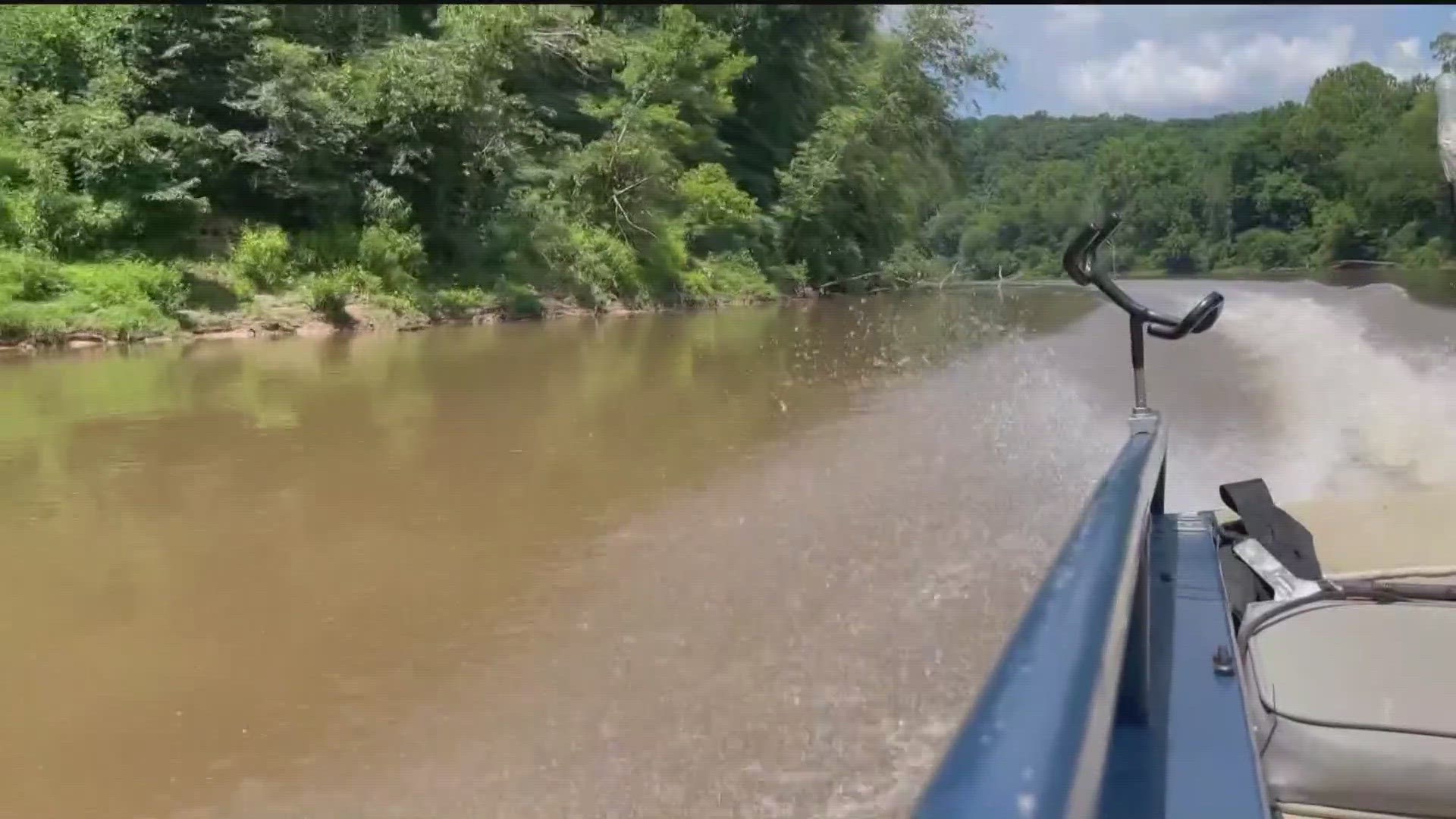FULTON COUNTY, Ga. — Fulton County officials reported Wednesday that it's actively working to tackle the discharge of partially treated wastewater, which has led to heightened levels of E. coli in the Chattahoochee River.
"It's a bit more complicated. It's a biological process," said a Fulton County official in a news conference at Big Creek Wastewater Plant on Thursday.
After receiving reports of increased E. coli levels near the Big Creek facility, Fulton County said it conducted tests to verify the situation. Collaborating with contractors and staff, an investigation focused on a comprehensive review of the facility's infrastructure and processes.
The investigation revealed no structural issues at the Big Creek facility. Instead, officials said the root cause was identified as an imbalance in the biological processes employed to treat wastewater. These processes rely on a balance between "good" and "bad" organisms. In this case, insufficient levels of the beneficial organisms resulted in the proliferation of harmful bacteria, including E. coli.
To rectify the situation, the county government said starting on July 3; it began introducing 12 truckloads of "good" microorganisms per day into the treatment plant. This reintroduction of beneficial microorganisms aims to restore the biological process and reestablish a healthy microbial balance within the facility.
On Saturday, Chattahoochee River riverkeeper Jason Usleth posted on social media that the tests are showing "significant reductions" in E. coli bacteria levels, which he said indicates the treatment process at the Big Creek Wastewater Treatment Plant are showing signs of success. However, the same stretch of 15 miles on the river are still closed.
Usleth told 11Alive they got the data from Friday's tests which he said showed dramatic improvement in the river itself. He believes they are almost in the clear when it comes to the river getting back to full health. He said he has not seen any recent data from the Big Creek plant where the spill itself occurred.
The county said the ongoing testing conducted since the implementation of this measure shows promising results, with improvements observed in the number and variety of microorganisms. Fulton County added that indicators also suggest that the reintroduction of microorganisms is proving effective in restoring the biological balance at the plant.
"We are doing additional disinfection here at the very end of the plant to try to kill of as much of the E. Coli that made it's way through the plant as fully as possible," said David Clark, the director of Fulton County Department of Public Works.
In addition to reintroducing beneficial microorganisms, Fulton County said it has introduced additional UV treatment processes to enhance disinfection and further address the presence of E. coli. To mitigate the impact of the discharge, approximately 5 million gallons of wastewater are being diverted to Cobb County's Sutton Water Reclamation Plant.
"We have to let the microorganisms grow so they can do their job in the treatment of wastewater," said Clark.
Fulton County has reported the issue to the Georgia Environmental Protection Division (EPD).
In Thursday's news conference, the director said that they are now in compliance with two out of seven parameters that are required to meet the EPD's standards.
They also support the decision of the National Park Service to extend the partial closure of the Chattahoochee River until the matter is fully resolved. And open lines of communication have been established with the cities of Roswell and Sandy Springs.
It is important to note that the county claims that the current situation does not impact the safety of the drinking water in Fulton County or the surrounding communities. The county remains committed to providing regular updates as efforts continue to restore normal conditions and ensure the long-term health of the Chattahoochee River ecosystem.

